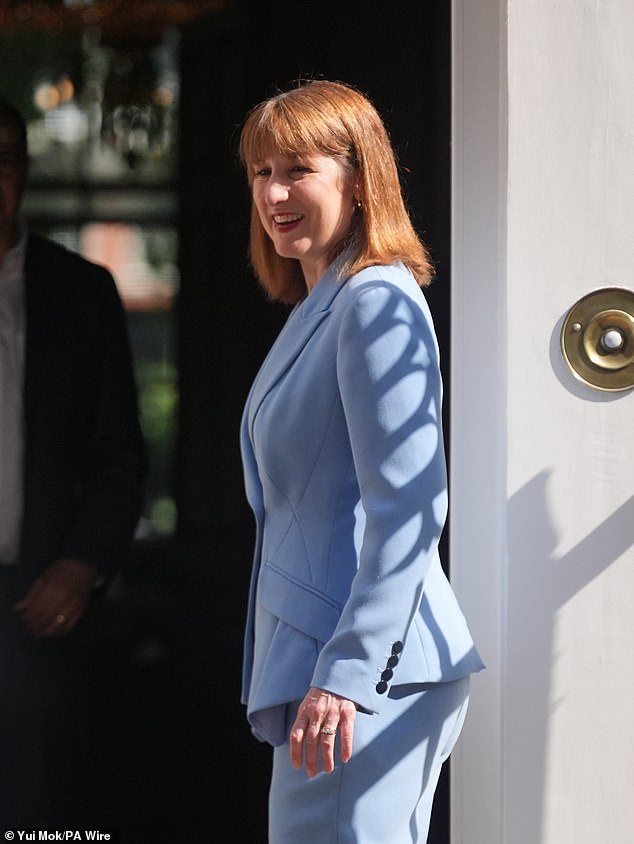Yesterday’s claim by Chancellor Rachel Reeves that Labour’s number one mission is to ‘put more money in the pockets of working people’ does not stand up to scrutiny.
Prices and the cost of living are rising, not falling – and there’s no end in sight.
Consumer price inflation was 3.4 per cent in May amid surging food prices, which were mainly a consequence of Reeves’s tax-raising Budget in October.
Producers and supermarkets have passed on the rocketing costs of employment, energy and business rates to consumers – costs which are hurting the very working people the Chancellor has pledged to help.
April’s inflation was fractionally higher at 3.5 per cent, but no one should assume that the worst is behind us. The conflagration in the Middle East has caused a sharp spike in market prices of oil, and that increase will quickly feed through to the petrol pumps.
In the event of a blockage to the Strait of Hormuz – the Iranian coastline forms one side of this narrow but vital waterway for Arabian Gulf oil and natural gas supplies – the world could face a shock so debilitating it would end any progress in bringing down inflation.
And if anyone believed that the Government’s self-inflicted price rises – the inflation that came through higher energy and water bills, and stamp duty on home purchases – were at an end, they should think again.
The impact that Angela Rayner’s employment rights legislation will have on costs is not yet known. The Deputy Prime Minister’s Bill is still trundling through the House of Commons, but it is certain to have a negative effect on the high street, where the cost of using part-time workers will increase sharply.

Rachel Reeves’ claim that Labour’s number one mission is to ‘put more money in the pockets of working people’ does not stand up to scrutiny, writes Alex Brummer
It is striking that, in presenting the Spending Review last week, the Chancellor took credit for the four cuts in the Bank of England’s key interest rate since Labour came to office. The reality is that, by loading £40billion of new taxes on business and citizens, she has raised the cost of living and made it more difficult for the Bank of England’s interest rate committee – which is divided on the issue – to step up the pace of rate cuts from the present 4.25 per cent.
It is all the more frustrating that several indicators used by the Bank have started to cool. The cost of services, for example, has dropped from 5.4 per cent in April to 4.7 per cent in May. That improvement, sadly, has been offset by the tax and spend agenda.
Labour was keen to blame the Tories for allowing inflation to jump to 11 per cent in 2022. That, of course, was in the aftermath of Russia’s invasion of Ukraine, when energy prices rocketed.
Now it is Rachel Reeves’s turn to face the turmoil of events beyond her control, this time in the Middle East.












